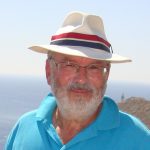Welcome to the September issue of the Lausanne Global Analysis, which is also available in Portuguese and Spanish. We look forward to your feedback on it.
In this issue we ask how Islamic radicalism and Saudi influence can be countered in Indonesia in the wake of former Jakarta Governor Ahok’s imprisonment on blasphemy charges; we highlight the church’s call to minister to, for, and with children-at-risk, empowering them to flourish as co-laborers in mission; we address the topic of innovation for integral mission, asking how we can generate more creative thinking, planning, and action to spread the gospel to the corners of the world; and we discuss how faithful presence means penetrating high and low culture for Christ as we assess the continuing salience of James Davison Hunter’s book, To Change the World: The Irony, Tragedy, and Possibility of Christianity in the Late Modern World.
This year’s Jakarta Governorship election produced Indonesia’s worst divisions for years. It culminated in the imprisonment of incumbent Governor Ahok, who is ethnic Chinese and a Christian, on charges of blasphemy. ‘The election and trial have exposed increasing radicalization in Indonesia, especially among the young’, writes Paul Marshall (Wilson Professor of Religious Freedom at Baylor University). There are several sources, but one major factor is a well-funded Saudi network of schools, scholarships, imams, and mosques that try to replace local interpretations of Islam, which have usually encouraged democracy and peaceful relations between religions, with Saudi Wahhabism. Many Indonesians now realize that they have been too complacent about the extent of extremism. This extent is also important globally: Muslims from Indonesia are currently 50 times less likely to try to join ISIS than Muslims from Europe. It is important for the church because over half of all Christians who live in Muslim-majority countries live in Indonesia. ‘Too often when outsiders think of Islam, they default to images of the Middle East and Arabs, although they are only one-fifth of the world’s Muslims. We need to pay more attention to the vast majority of Muslim-majority countries, in Asia and Africa, and their struggles with extremist ideas stemming largely from the Middle East’, he concludes.
Children face great risks in every region of the world, including extreme poverty, conflict, violence, abuse, the refugee crisis, trafficking, and prostitution. However, each one is much more than a victim. ‘Each child in our broken and messy world is a multi-faceted human being, created in God’s image, endowed with spiritual gifts—a child who can meaningfully participate as a co-laborer in church and mission’, write Susan Greener (Associate Professor of Intercultural Studies at Wheaton College Graduate School) and Michelle Tolentino (Co-Founder of Made in Hope), Lausanne Catalysts for Children at Risk. The global church is taking notice and rising up to address the importance of children, particularly children-at-risk. The Second Lausanne Forum on Children-at-risk this year gathered 74 specially invited academics, church leaders, theologians, missiologists, practitioners, and NGO representatives to craft action plans for mobilizing the global church to address these issues. The church is uniquely positioned to minister to, for, and with children-at-risk because it is present almost everywhere in the world. ‘We call the global church to pray for us as we continue to seek God’s wisdom in our work together on behalf of the children-at-risk among us. In addition, we ask others to join us on mission to, for, and with children-at-risk, empowering them to flourish and express their God-given gifts and co-participation in the Missio Dei’, they conclude.
‘Generally, discussion of innovation has focused on developing business and technology advances. Let us consider what innovation means when we apply it to spreading the gospel to the corners of the world’, writes Paul Dzubinski (Director of the RDW Launch Lab, Frontier Ventures). Using Lausanne’s definition of integral mission as a focus, innovation for integral mission can be seen as the creation of sustainable new solutions to the problems faced in discerning, proclaiming, and living out God’s good news for individual persons, societies, and creation. The word ‘sustainable’ indicates the difference between an intuitive idea and an innovation. It takes prayer, planning, and hard work to turn an intuitive idea into an integral mission innovation or startup. It is no surprise that there is innovation in mission since hints at innovation can be seen in the biblical record since Genesis. You can help your innovation succeed by using the Lean Startup methodology. Will your holistic ministry in the social sector bring gospel transformation to society? Social transformation will improve through holiness and prayer, together with measuring the changes in a society that result from ministries focused on integral mission. ‘The call of the gospel requires more divergent, more creative, more innovative, and deeper thinking, planning, and action in order to spread the gospel to the corners of the world’, he concludes.
‘This is the book that had evangelicals sweating six years ago’, writes Jenny Taylor (writer, journalist and consultant) about Davison Hunter’s book. Nevertheless, its salience came into sharp focus with the recent US presidential election, in view of its bitter warnings to evangelicals about the dangers of seeking political power to enforce a moral agenda. The problem, says Davison Hunter, is that it is not Christian, nor does it actually change anything. The solution is not more power but more strategic and authentic influence.
‘Faithful presence’—a phrase Hunter coins—implies sacrifice, submission, a quality that is the opposite of domination, and the antithesis of celebrity. Christians tend to disconnect themselves today from ‘godless’ cultural spheres where influence might be most effective—such as film, fine art, and journalism—while at the same time confronting those spheres through politics from outside with forms of verbal negation. The practice of faithful presence in high culture requires ‘faith, hope, and above all love’. Actually changing the world is not what Christianity is really about, he says. Change is only the net effect of caring for something more than the good created. This book seeks to send Christians back into the world with a message of love for it. ‘Faithful presence requires all spheres to be inhabited for Christ’, she concludes.
We hope that you find this issue stimulating and useful. Our aim is to deliver strategic and credible analysis, information, and insight so that as a leader you will be better equipped for the task of world evangelization. It is our desire that the analysis of current and future trends and developments will help you and your team make better decisions about the stewardship of all that God has entrusted to your care.
Please send any questions and comments about this issue to analysis@lausanne.org. The next issue of The Lausanne Global Analysis will be released in November.

